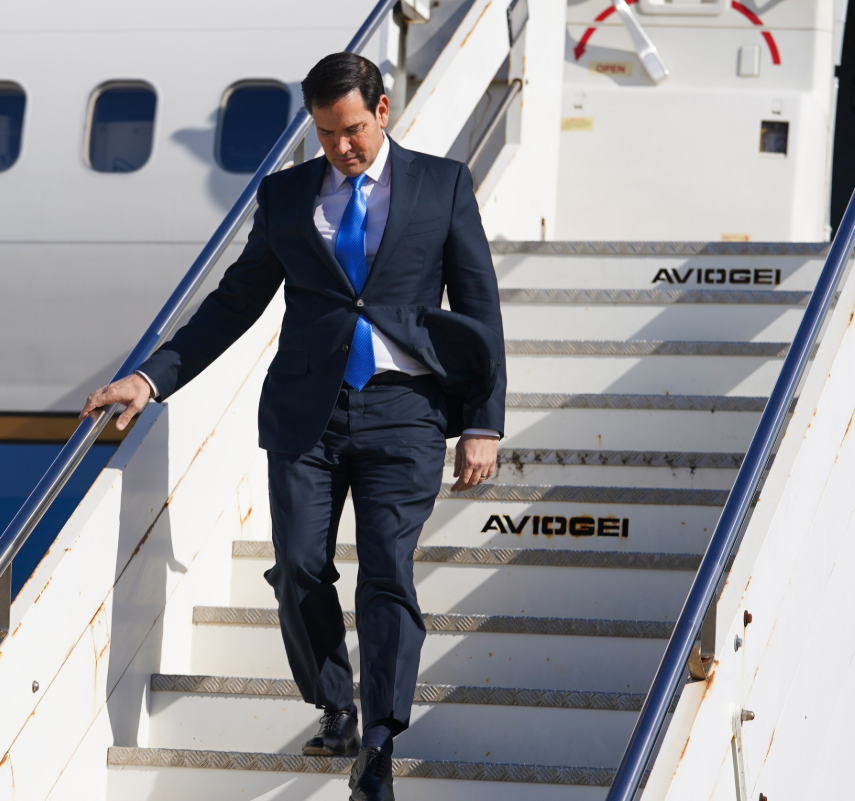U.S. Secretary of State Marco Rubio reveals major diplomatic progress toward ending the Russia-Ukraine war following Special Envoy Steve Witkoff’s meeting with Vladimir Putin in Moscow. Rubio discusses the possibility of a Trump-Putin-Zelenskyy summit, outlines Russia’s conditions for peace, and addresses growing tensions in Gaza. Here’s a full breakdown of Rubio’s exclusive interview and what it means for global diplomacy.
Secretary of State Marco Rubio Hints at Possible Trump-Putin-Zelenskyy Peace Summit
In a major diplomatic development, U.S. Secretary of State Marco Rubio appeared on Interview to confirm what could be a major turning point in the ongoing Russia-Ukraine war. Rubio disclosed that U.S. Special Envoy Steve Witkoff held a “highly productive” meeting with Russian President Vladimir Putin in Moscow, discussing ideas on how to potentially bring the war to an end. While the path ahead remains uncertain, Secretary Rubio made clear that the U.S. is inching closer than ever to brokering a meaningful resolution.
Rubio said the talks produced “details that hadn’t been shared before” and reflected President Donald Trump’s commitment to “ending the war.” Following Witkoff’s meeting, President Trump reportedly briefed several European leaders and is expected to hold consultations with Ukraine and other allies in the coming days.
When pressed about a possible meeting between Trump, Putin, and Ukrainian President Volodymyr Zelenskyy, Marco Rubio confirmed that if progress continues, “an opportunity will present itself very soon” for such a high-level summit. He added that President Trump would likely need to “come in at the end and close on it,” much like he has done in past trade deals.

Rubio emphasized the need for concrete conditions to be in place before any leaders’ summit could be productive. “You want to get 85% of the way there… before you put the leaders in the room,” he said. “Nothing comes of that meeting if you’re not close enough.”
One of the key takeaways from the meeting in Moscow was a better understanding of what Russia might require to end the war. While Marco Rubio avoided divulging specifics, he acknowledged that territorial concessions would likely be part of any agreement. He noted the complexity of negotiating over areas such as Crimea and regions occupied by Russian forces post-2014, stressing that both sides—Ukraine and Russia—will need to make difficult concessions.
“The Ukrainians have paid an enormous price in this war, so have the Russians,” Rubio stated, adding that selling any agreement to the public on either side would be a monumental challenge.
On the matter of a cease-fire, Marco Rubio said that it would be a necessary precursor to any long-term agreement. “You have to make enough progress with enough of an outline of how the war is going to end… that ideally puts you into a cease-fire position for a short period of time,” he explained.
When asked directly whether Ambassador Witkoff is returning with a cease-fire deal, Rubio clarified that while specific timing was not discussed, the U.S. now has “concrete examples of the kinds of things Russia would ask for in order to end the war.” He reiterated that aligning these demands with what Ukraine and European allies can accept is the next critical step.
As for potential secondary sanctions on Russia scheduled for Friday, Marco Rubio said no final decision has been made. “That’s a decision the President will need to make over the next 24-36 hours,” he said. “We’ll be doing a lot of work today and tomorrow to see how close we can bring the two sides and then present that to the President.”
Regarding the possibility of a Trump-Putin phone call, Rubio said none was scheduled yet, but one could happen “over the next couple of days.” He reiterated that the key goal now is to narrow the distance between what both sides are willing to accept.
When asked whether a peace summit could happen as early as next week, Marco Rubio remained cautious. “It could take hours, days, frankly weeks—we don’t know,” he said. “But we’re working on it, even as we speak.”
In the final segment of the interview, Secretary Marco Rubio also touched upon rising tensions in the Middle East. Reports suggest that the Israeli government is considering a full military takeover of Gaza. Rubio did not confirm any recent conversation with Israeli Prime Minister Benjamin Netanyahu but stated he is in near-daily contact with the Israeli government.
Rubio outlined three interrelated challenges in Gaza: the humanitarian crisis, the 20 hostages still being held by Hamas, and the need to dismantle Hamas as an armed organization. “As long as Hamas exists, there will not be peace,” he said. “There’s not enough attention being paid to the fact that 20 people that have nothing to do with this are being held hostage in tunnels on the verge of death.”
President Trump, according to Marco Rubio, is firm in his demand that all hostages—not just a few—must be released. He also believes that Hamas cannot be allowed to continue functioning in Gaza if lasting peace is to be achieved. “This can never happen again,” Rubio said.
While both the Russia-Ukraine conflict and the Gaza situation remain highly volatile, Secretary Rubio’s comments suggest a renewed sense of urgency and possibility. Whether this translates into tangible peace agreements remains to be seen, but for the first time in a long while, a diplomatic off-ramp may be on the horizon.
Disclaimer:
The information presented in this article is based on a recent interview and ongoing diplomatic developments. The situation is fluid, and final outcomes may differ from preliminary reports. This article reflects the status as of publication and may be updated with further developments.

